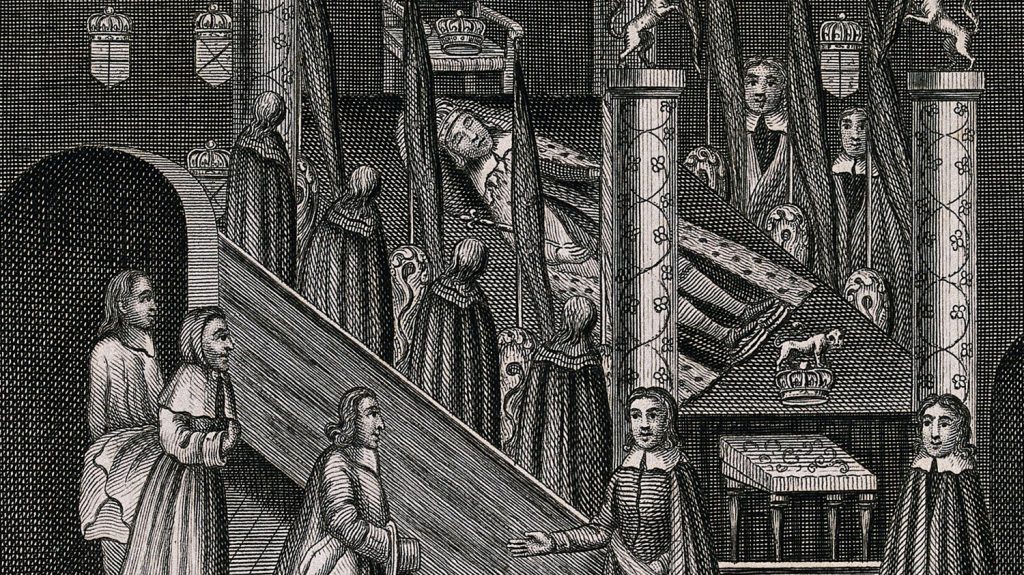Oliver Cromwell died today in 1658 after a decade as the first English head of state to be a Puritan, or a republican, or to practise religious toleration. He lay in state (above) and was buried with great pomp and ceremony in Westminster Abbey, but three years later, after King Charles II had returned from exile, he was dug up, publicly ‘executed’, and his head stuck on a pole in Westminster.
Kryštof Harant, a Czech nobleman, arrived in Jerusalem today in 1598, five months after setting out from his homeland on pilgrimage. He later wrote up his travels in an entertaining and educational book, Journey from Bohemia to the Holy Land, by Way of Venice and the Sea, which was published in 1608, illustrated with 50 woodcuts.
‘We drove together in great darkness, so that we could scarcely see each other, because it was the new moon. When dawn broke, we saw a great plain around Rama, in which grain, fruit, Indian millet, melons – red inside and very good – rice, cotton, and other things grow in abundance. The plain, which was many miles in breadth, stretched out of Joppa halfway to Jerusalem. That morning we drove about a mile by donkey train along the plain, and then approached the mountains of Jerusalem.’ Kryštof Harant, Journey from Bohemia to the Holy Land, by Way of Venice and the Sea
Sun Myung Moon, the founder of the Unification Church based in South Korea, died today in 2012 at the age of 92. Jailed twice during his life – first in North Korea on a charge of spying, and second in the US for tax evasion – Moon was famous for claiming to be the Second Coming of Christ, and for simultaneously blessing up to 30,000 married couples, all dressed in their wedding get-up, in impressive mass ceremonies.
Gregory the Great, the first of a long line of Pope Gregories, was elected today in the year 590. He is called great because of his huge influence as a statesman and writer, and it is argued that the chaos which followed the decline and fall of the Roman Empire in the West would have lasted much longer without him. Gregory is the second most popular name for Popes, beaten only by the 21 Pope Johns. There have been 16 Pope Gregories, plus two Antipope Gregories, and the most recent was Gregory XVI, who died in 1846.
On this day in 1752, 3 September was declared to be 14 September in Britain, when the Gregorian calendar was finally introduced, after 200 years’ resistance due to the calendar’s Catholic origins. It is said that people were so angry at ‘losing 11 days of their lives’ they rioted in the streets. The calendar was named after Pope Gregory XIII and was adopted by southern European countries such as Spain, France and Italy in 1582. Russia and Greece adopted it in 1918 and 1923.
Image: Wellcome Collection
